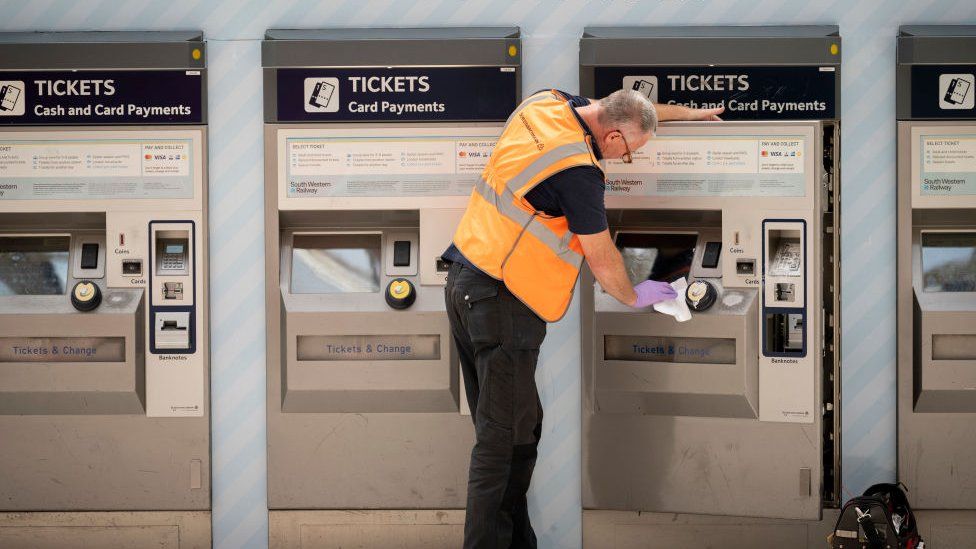ARTICLE AD BOX
 Image source, Getty Images
Image source, Getty Images
The second day of rail strikes is under way after talks between unions and rail bosses broke down
The government has announced plans to change the law to enable employers to use agency staff to cover staffing gaps during strikes.
Ministers say the measure, which needs Parliament's approval, would limit the impact of future strikes.
But opposition parties and unions have criticised the plan, arguing it would undermine pay and working conditions.
It comes as rail strikes in Britain resumed after talks between unions and rail bosses broke down on Wednesday.
Rail workers are holding their second strike this week - the largest action of its kind in decades - in a dispute over jobs, pay and conditions, with just 20% of services expected to run.
The Rail, Maritime and Transport union is calling for a pay rise of at least 7% to offset the cost of living crisis, but employers have offered a maximum of 3%, on condition that the union accepts new working practices.
The government argues that changing laws that were introduced in the 1970s will keep services running during strikes by giving businesses the freedom to access agency staff quickly.
The changes - which would apply across England, Scotland and Wales - would cover employers in both the private and public sector and would likely come into effect in mid-July.
Business Secretary Kwasi Kwarteng accused trade unions of holding the country to "ransom" by bringing businesses and public services to a halt.
He said: "Repealing these 1970s-era restrictions will give businesses freedom to access fully-skilled staff at speed, all while allowing people to get on with their lives uninterrupted to help keep the economy ticking."
Network Rail said the proposal was "welcome news" that could help it provide a better service during strike days if the dispute "drags on".
"While key safety-critical roles require many months of training, there are many other roles where they could be used, such as in security operations, which would make a real difference."
But the Trades Union Congress said the plan would undermine the right to strike, adding that bringing in less qualified agency staff to deliver services would endanger public safety.
TUC general secretary Frances O'Grady said: "The government should be getting people around the table to find a fair resolution to this rail dispute.
"But ministers are more interested in cynically picking a fight with unions than reaching a negotiated settlement."
Labour's deputy leader, Angela Rayner, said it would undermine pay and working conditions and risk public safety.
The Liberal Democrats' transport spokesperson, Sarah Olney, said the proposals were "too little too late" to stop the disruption caused by rail strikes.
Image source, PA Media
Image caption,Passengers across Britain faced journeys hours longer than usual and surging road traffic on Tuesday
Meanwhile, Education Secretary Nadhim Zahawi has said a teachers' strike would be "unforgiveable".
The National Education Union this week warned that it would hold a ballet on industrial action if its demands for an "inflation-plus" pay rise were not met.
Writing in the Daily Telegraph, Mr Zahawi said a strike would be "irresponsible" given the disruption children and young people had endured as a result of the Covid pandemic.
Mr Zahawi said: "Young people have suffered more disruption than any generation that's gone before them, and to compound that now, as recovery is in full swing and families are thinking about their big step following school or college, would be unforgivable and unfair."

 2 years ago
24
2 years ago
24








 English (US)
English (US)